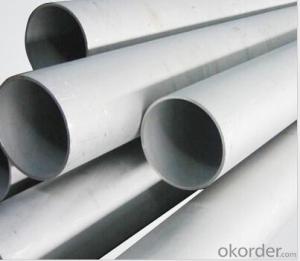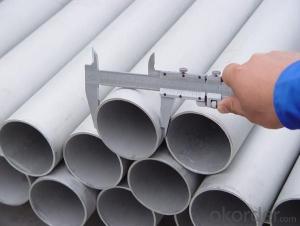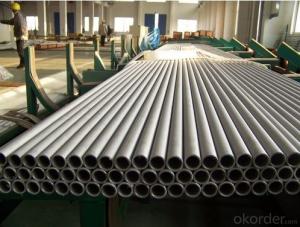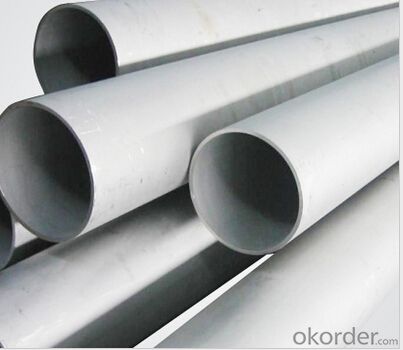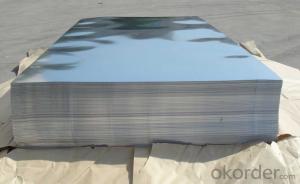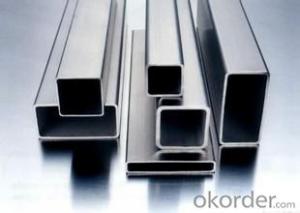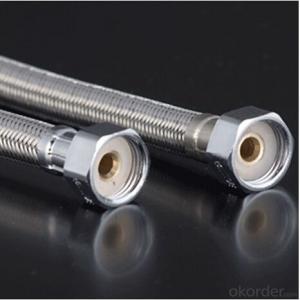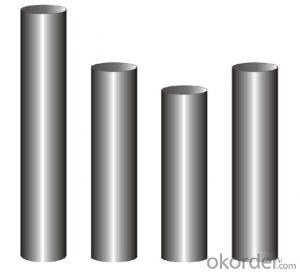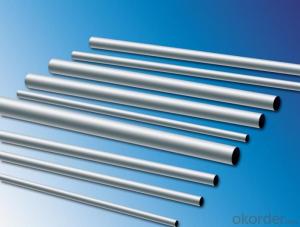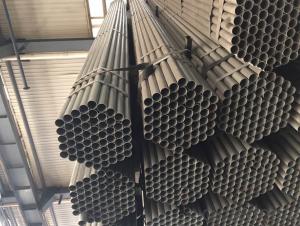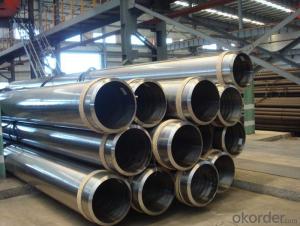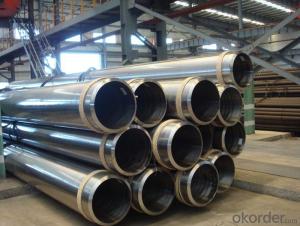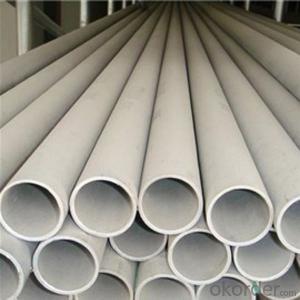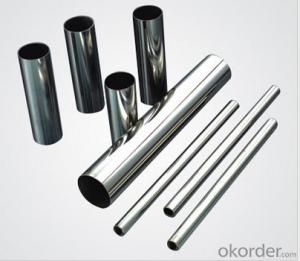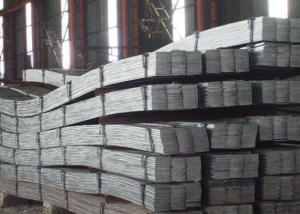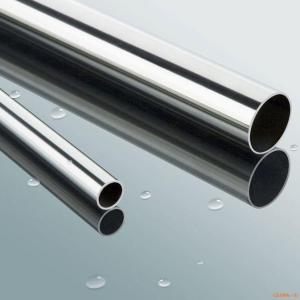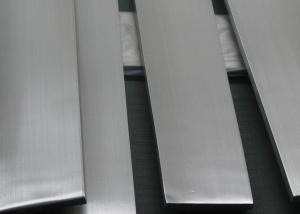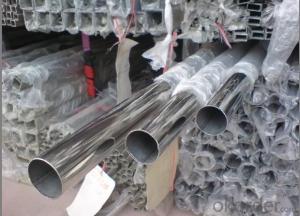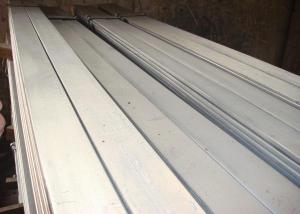Stainless Steel Welded Pipe duplex ASTM A790/ASTM A789 GB/T21832-2008
- Loading Port:
- Ningbo
- Payment Terms:
- TT OR LC
- Min Order Qty:
- 25 m.t.
- Supply Capability:
- 5000 m.t./month
OKorder Service Pledge
OKorder Financial Service
You Might Also Like
1、Structure of Stainless Steel Welded Pipe duplex ASTM A790/ASTM A789 GB/T21832-2008 Description:
Stainless steel welded pipe is actually a cover term, covering a wide range of alloy and making them suitable for different attributes that are used in a very wide and large numbers of different industries. Stainless steel pipe is resistant to erosion, highly flexible, powerful, easy to use, and can be done in distinct approaches, which means that more and more stainless steel was used as a construction material for large-scale, high impact buildings. It can be molded, rolling, and it can create amazing shapes to make it perfect, It is used as experimental buildings, The use of steel pipe welding of large stainless steel covers other examples.
2、Main Features of the Stainless Steel Welded Pipe duplex ASTM A790/ASTM A789 GB/T21832-2008:
• High manufacturing accuracy
• High strength
• Small inertia resistance
• Strong heat dissipation ability
• Good visual effect
•Reasonable price
3、Stainless Steel Welded Pipe duplex ASTM A790/ASTM A789 GB/T21832-2008 Images:
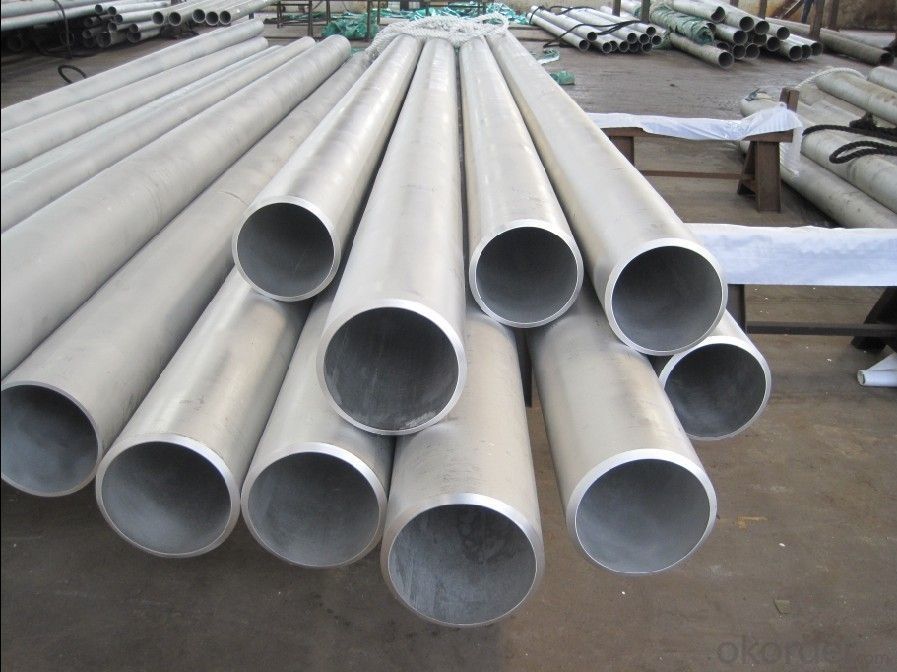
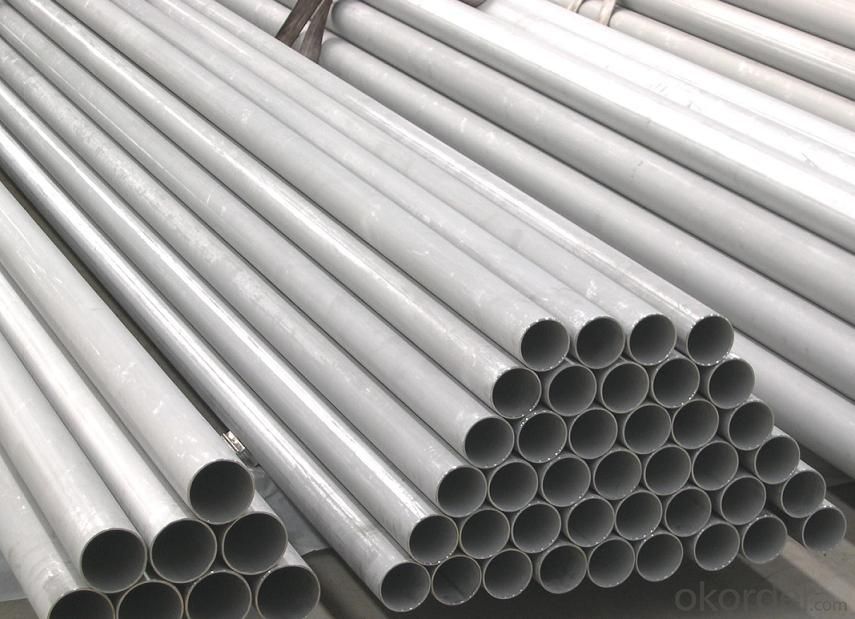
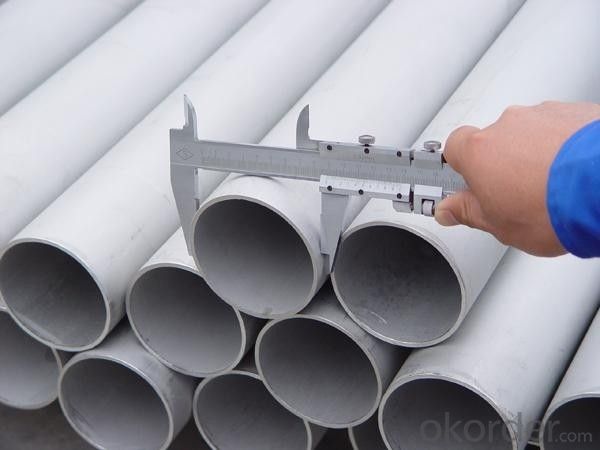
4、Stainless Steel Welded Pipe duplex ASTM A790/ASTM A789 GB/T21832-2008 Specification:
composition of duplex stainless pipe(%)
| Steel grade | C≤ | Mn≤ | Si≤ | S≤ | P≤ | Cr | Ni | Mo | Cu≤ | N |
| S32750((SAF2507) 00Cr22Ni7Mo4N | 0.03 | 1.20 | 0.80 | 0.020 | 0.035 | 24.0/ 26.0 | 6.0/ 8.0 | 3.0/ 5.0 | 0.50 | 0.24/ 0.32 |
| S31803(SAF2205) 00Cr22Ni5Mo3N | 0.03 | 2.00 | 1.0 | 0.02 | 0.030 | 21.0/ 23.0 | 4.50/ 6.50 | 2.50/ 3.50 | 0.08/ 0.20 | |
| S31500(3RE60) 00Cr18Ni5Mo3Si2 | 0.03 | 1.2/ 2.00 | 1. 4/ 2.00 | 0.030 | 0.030 | 18.0/ 19.0 | 4.25/ 5.25 | 2.50/ 2.00 | 0.05/ 0.10 |
Mechanical Properties of duplex pipe:
| Steel Grade | Heat Treatment Temperature ℃ | Ab(MPa)≥ | As(MPa)≥ | ∮≥ | brinell | rockwell |
| S32750(SAF2507) 00Cr22Ni5Mo3N | 1025-1125 water | 800 | 550 | 15 | 310 | 32 |
| S31803(SAF2205) 00Cr22Ni5Mo3N | 1020-1100 | 620 | 450 | 25 | 290 | 30.5 |
| S31500(3RE60) 00Cr18Ni5Mo3Si2 | 980-1040 | 630 | 440 | 30 | 290 | 30.5 |
Details:
Outer Diameter | 6mm--159mm | |||||
Thickness | 0.3mm - 3.0mm | |||||
Length | 6m or as customers' request | |||||
Surface | 180G, 320G, 400G Satin / Hairline 400G, 500G, 600G or 800G Mirror finish | |||||
Application | Decoration construction, upholstery, industry instrument | |||||
Test | Squash test, extended test, water pressure test, crystal rot test, heat treatment, NDT | |||||
5、FAQ of Stainless Steel Welded Pipe duplex ASTM A790/ASTM A789 GB/T21832-2008:
①How is the quality of your products?
Our products are manufactured strictly according to national and internaional standard, and we take a test on every pipe before delivered out. If you want see our quality certifications and all kinds of testing report, please just ask us for it.
Guaranteed: If products’ quality don’t accord to discription as we give or the promise before you place order, we promise 100% refund.
②How about price?
Yes, we are factory and be able to give you lowest price below market one, and we have a policy that “ for saving time and absolutely honest business attitude, we quote as lowest as possible for any customer, and discount can be given according to quantity”,if you like bargain and factory price is not low enough as you think, just don’t waste your time.Please trust the quotation we would give you, it is professional one.
③Why should you chose us?
Chose happens because of quality, then price, We can give you both.Additionally, we can also offer professional products inquiry, products knowledge train(for agents), smooth goods delivery, exellent customer solution proposals.Our service formula: good quality+good price+good service=customer’s trust
SGS test is available, customer inspection before shipping is welcome, third party inspection is no problem.
Any question, pls feel free to contact us !
- Q: Can stainless steel pipes be used in the renewable energy industry?
- Yes, stainless steel pipes can definitely be used in the renewable energy industry. Stainless steel is a highly versatile and durable material that offers numerous advantages for various applications in renewable energy systems. One of the key benefits of stainless steel pipes is their exceptional corrosion resistance. This makes them ideal for use in environments where exposure to moisture, chemicals, and other corrosive elements is common, such as in solar power plants, geothermal energy systems, and offshore wind farms. Stainless steel pipes can withstand these harsh conditions and maintain their structural integrity over long periods, reducing the need for frequent repairs and replacements. Another advantage of stainless steel pipes is their high strength-to-weight ratio, which allows for the design of lightweight and efficient renewable energy structures. Stainless steel pipes can be used in the construction of support frames, structures, and pipelines for wind turbines, solar thermal collectors, and biomass power plants, among others. Their strength and durability contribute to the overall reliability and longevity of the renewable energy systems. Furthermore, stainless steel pipes are resistant to extreme temperatures, making them suitable for use in high-temperature applications like concentrated solar power systems. These pipes can handle the intense heat generated by solar receivers without undergoing deformation or degradation, ensuring the efficient transfer of heat in the system. In addition to their mechanical properties, stainless steel pipes are also hygienic and environmentally friendly. They are easy to clean and maintain, reducing the risk of contamination and ensuring the purity of fluids in renewable energy processes. Stainless steel is also a recyclable material, aligning with the sustainability principles of the renewable energy industry. Overall, stainless steel pipes offer a reliable, long-lasting, and cost-effective solution for various applications in the renewable energy industry. Their corrosion resistance, strength, temperature resistance, and environmental benefits make them an excellent choice for transporting fluids, supporting structures, and withstanding the demanding conditions of renewable energy systems.
- Q: Stainless steel pipe chamfering how to process?
- If the amount of larger or longer steel pipe, you can buy a dedicated handheld steel pipe chamfering tool, called "steel chamfering machine"". This is much more efficient than using a lathe
- Q: What is the difference between 904L and 2205 stainless steel pipes?
- 904L and 2205 stainless steel pipes differ in various aspects. Firstly, their composition varies significantly. 904L stainless steel is a high alloy austenitic stainless steel with elevated levels of chromium, nickel, and molybdenum. It also has a low carbon content, granting it remarkable resistance to corrosion and pitting. Conversely, 2205 stainless steel is a duplex stainless steel that combines austenite and ferrite phases. It contains lower amounts of chromium and nickel compared to 904L, but boasts higher levels of molybdenum and nitrogen. Secondly, the mechanical properties of these steels differ. 904L stainless steel exhibits exceptional toughness and high strength, making it suitable for applications in aggressive environments such as chemical processing plants and offshore oil and gas platforms. Conversely, 2205 stainless steel possesses good overall mechanical properties, including high tensile and yield strength. It is commonly utilized in industries like marine, paper, and pulp, wherein resistance to stress corrosion cracking is crucial. Additionally, their resistance to corrosion separates them further. Although both steels are corrosion-resistant, 904L stainless steel showcases remarkable resistance to a wide range of corrosive environments, including sulfuric acid, hydrochloric acid, and saltwater. This makes it an ideal choice for industries that demand extreme corrosion resistance. On the other hand, 2205 stainless steel, while not as corrosion-resistant as 904L, still offers good resistance to many corrosive substances, rendering it suitable for various applications. Cost constitutes another distinguishing factor between these steels. Due to its high alloy content and superior properties, 904L stainless steel generally carries a higher price tag than 2205 stainless steel. Therefore, the selection between the two will depend on the specific requirements of the application and the allocated budget. In conclusion, the main disparities between 904L and 2205 stainless steel pipes emerge in their composition, mechanical properties, corrosion resistance, and cost. Comprehending these distinctions aids in selecting the appropriate stainless steel pipe for a given application.
- Q: What is the welding procedure for stainless steel pipes?
- The welding procedure for stainless steel pipes involves cleaning the surfaces to be welded, preheating the pipes to the recommended temperature, selecting the appropriate welding method (TIG, MIG, or stick), and using the correct filler material. The welder should maintain proper shielding gas flow, control the heat input, and ensure consistent and smooth welding passes. Post-welding, the weld area should be properly cleaned and inspected for any defects.
- Q: Can stainless steel pipes be used for brewery applications?
- Yes, stainless steel pipes can be used for brewery applications. Stainless steel is the preferred material for many breweries due to its excellent corrosion resistance, durability, and hygienic properties. Stainless steel pipes do not react with the ingredients in beer, ensuring the purity and taste of the final product. They are also easy to clean and maintain, reducing the risk of contamination. Additionally, stainless steel pipes can withstand high temperatures and pressures, making them suitable for various brewery processes such as brewing, fermentation, and storage. Overall, stainless steel pipes are a reliable and long-lasting choice for brewery applications.
- Q: How do you calculate the maximum allowable span for stainless steel pipes?
- The maximum allowable span for stainless steel pipes can be calculated by considering various factors such as the material's tensile strength, the pipe's diameter, wall thickness, and the type of support or loading conditions. By using engineering formulas and standards specific to stainless steel pipes, such as those provided by ASME B31.1 or ASME B31.3, one can determine the maximum span that ensures structural integrity and safety.
- Q: How do you calculate the heat transfer coefficient of stainless steel pipes?
- The heat transfer coefficient of stainless steel pipes can be calculated using various methods, including empirical correlations and theoretical calculations. One commonly used empirical correlation is the Dittus-Boelter equation, which relates the heat transfer coefficient to the Reynolds number and Prandtl number. The Dittus-Boelter equation is given by: Nu = 0.023 * Re^0.8 * Pr^0.4 Where Nu is the Nusselt number, Re is the Reynolds number, and Pr is the Prandtl number. The Nusselt number represents the ratio of convective to conductive heat transfer and is dimensionless. To calculate the Reynolds number, use the following formula: Re = (ρ * v * D) / μ Where ρ is the density of the fluid, v is the velocity of the fluid, D is the hydraulic diameter of the pipe, and μ is the dynamic viscosity of the fluid. The Prandtl number can be determined using the following equation: Pr = μ * Cp / k Where Cp is the specific heat capacity of the fluid and k is the thermal conductivity of the fluid. Once the Reynolds and Prandtl numbers are determined, substitute them into the Dittus-Boelter equation to calculate the Nusselt number. Finally, the heat transfer coefficient can be obtained by multiplying the Nusselt number with the thermal conductivity of the fluid and dividing it by the hydraulic diameter of the pipe: h = (Nu * k) / D Where h is the heat transfer coefficient. It is important to note that these calculations are based on assumptions and empirical correlations, and actual heat transfer coefficients may vary depending on various factors such as pipe roughness, fluid properties, and flow conditions. Therefore, it is recommended to consult relevant heat transfer literature or conduct experimental studies for more accurate results.
- Q: Can stainless steel pipes be insulated with polyimide?
- Yes, stainless steel pipes can be insulated with polyimide. Polyimide is a type of high-performance insulation material that is widely used in various industries for its excellent thermal stability, electrical insulation properties, and resistance to chemicals. It can withstand high temperatures and is known for its low thermal conductivity. This makes it an ideal choice for insulating stainless steel pipes, especially in applications where heat resistance and energy conservation are important. Polyimide insulation can help reduce heat transfer, prevent condensation, and improve the overall efficiency and performance of stainless steel pipes.
- Q: Difference between stainless steel and steel pipe
- 2. welded steel pipe for different welding process and divided into the furnace pipe welding (ERW) pipe and automatic arc welding, because of the different forms of welding seam welded pipe and spiral welded pipe is divided into two kinds, end its shape is divided into circular welded and shaped (square, flat) pipe.The welded pipe is rolled into the steel tubular to sew or spiral seam welded in the manufacturing method, and is divided into low pressure fluid delivery with welded steel pipe, spiral welded steel pipe, welded steel pipe, welded pipe roll etc.. Seamless steel pipe can be used in various industries, such as liquid, pneumatic, pipeline and gas pipeline. Welding pipes can be used in water pipelines, gas pipelines, heating pipes, electrical appliances, pipelines and so on.
- Q: What is the standard size range for stainless steel pipes?
- The stainless steel pipe size range varies depending on the industry and application it is being used for. Generally speaking, stainless steel pipes come in a wide array of sizes. They can start from small diameters, measuring about 0.5 inches (12.7 mm), and go all the way up to large diameters of 48 inches (1219 mm) or even larger in certain cases. The wall thickness of these pipes can also differ, ranging from thin-walled pipes with a few millimeters thickness to heavy-walled pipes with thicknesses exceeding an inch. Determining the specific size range for stainless steel pipes depends on factors like the intended use, pressure requirements, and adherence to industry standards. It is crucial to consult relevant specifications and standards to accurately ascertain the appropriate size range for a given application.
Send your message to us
Stainless Steel Welded Pipe duplex ASTM A790/ASTM A789 GB/T21832-2008
- Loading Port:
- Ningbo
- Payment Terms:
- TT OR LC
- Min Order Qty:
- 25 m.t.
- Supply Capability:
- 5000 m.t./month
OKorder Service Pledge
OKorder Financial Service
Similar products
Hot products
Hot Searches
Related keywords
